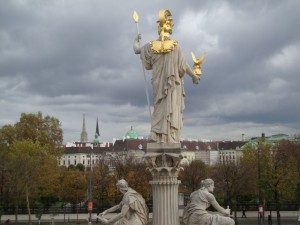
The series of publications begins with the 9th chapter, in the middle of my book. Starting point is the concept of “sovereignty of the people”. This was the answer that the age of enlightenment gave to a previous doctrine, the “sovereignty of monarchs”. People’s sovereignty is the corner stone concept of democracy up to this day.
Tellingly, todays politicians, who obtained their office by an election process, disavow this principle, asserting that it is not compatible with the world in which we live. This applies especially to EU politicians and policy makers.
But it would have been difficult, to reinstate divine right as a source of political power. This is why EU career politicians had to come up with something else to bolster their legitimacy. They seemingly decided not to abandon the principle of representative democracy, but to change the sovereign. This is why they want to go from a national to a supranational source of legitimate rule, the “european citizen”.
Alas this is something that in reality does not exist – not today and not in the near future. The rationale seems to be, that it would be easier to rule over a linguistically and culturally diverse (divided) people, thereby enabling the politicians’ lack of accountability to remain unnoticed. It is similar to imperial Rome’s rule of thumb: “Divide et impera.”
There are a few reasons, why the likely emergence of a european people (as a political entity) is still far down the road. The two major ones are “public sphere” and language.
First you would have to have some sort of “fourth power” – european media -, which would be in the position to counterbalance a european government (leaving aside the fact, that the other usual forms of separation of powers don’t work in the EU anyway). Starting with Maastricht 1992, there were some attempts to grow a paneuropean press, but (nearly) each one failed.
The deeper cause for this failure is the lack of a common language. In the EU countries 24 major languages are spoken and there still is nothing like a lingua franca, which could connect european people(s). Even India, which is arguably more diverse than Europe, has stronger linguistic ties: Hindi is understood and spoken by a huge chunk of the population, including hundred millions of peasants; and english serves as lingua franca for the elites and urban dwellers.
Even in a best case scenario only one third of the european population would be proficient enough in english, if this tongue would be chosen as a lingua franca. This of course would be the best option, because of all european languages english is most widely understood (spoken).
But even so, at least 80 percent of the Europeans would be linguistically handicapped, because of their accent and their restricted word pool. And that’s provided, that UK stays within the EU. Otherwise this number is more likely to be 90 per cent or higher.